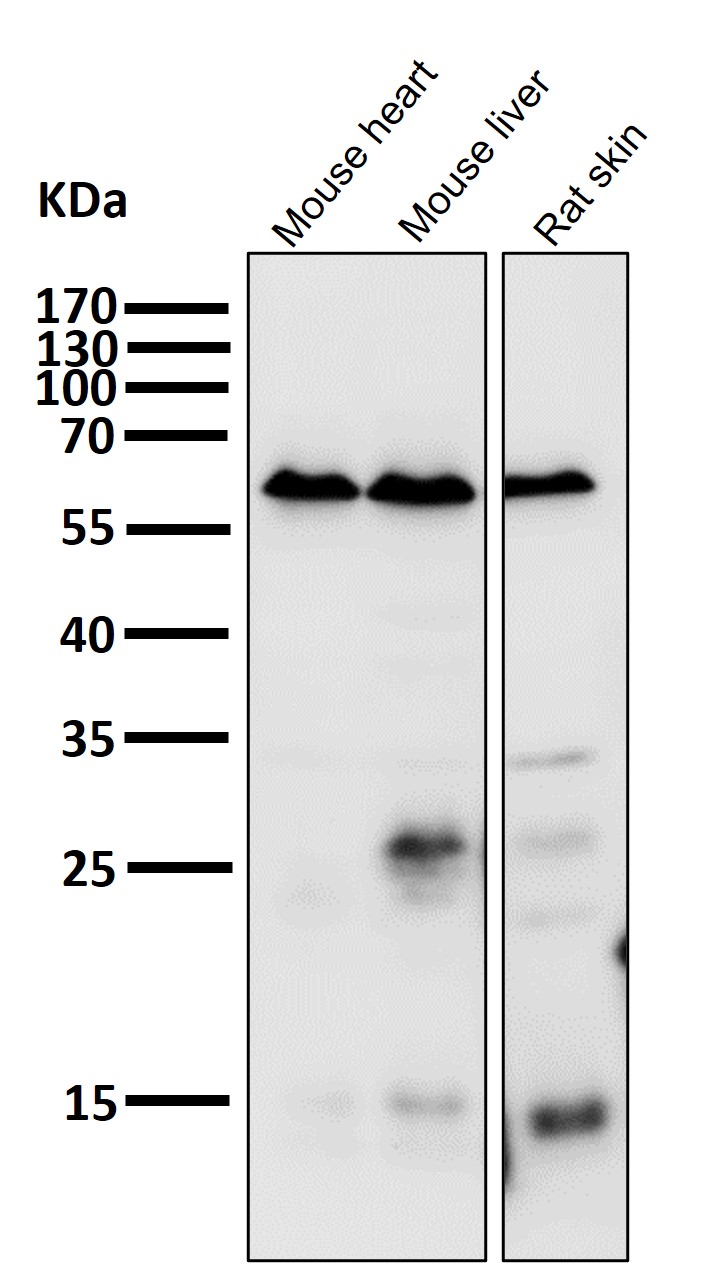
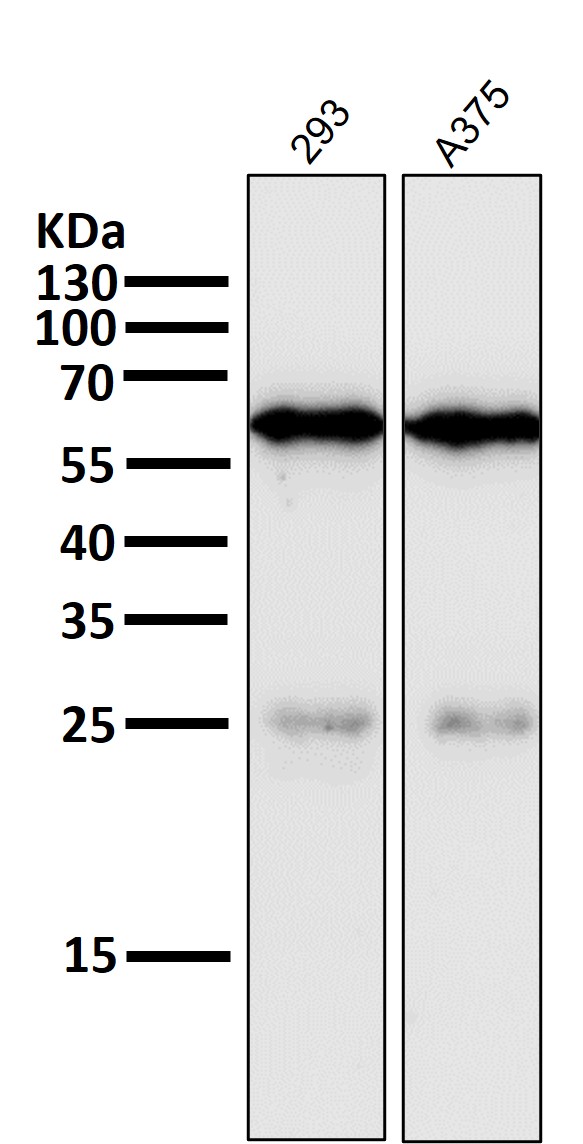
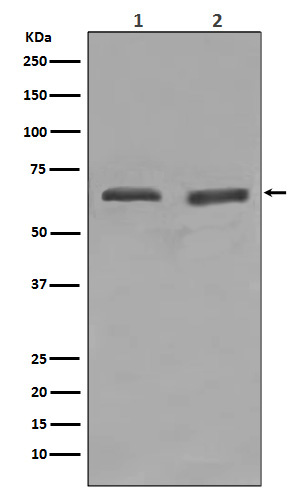
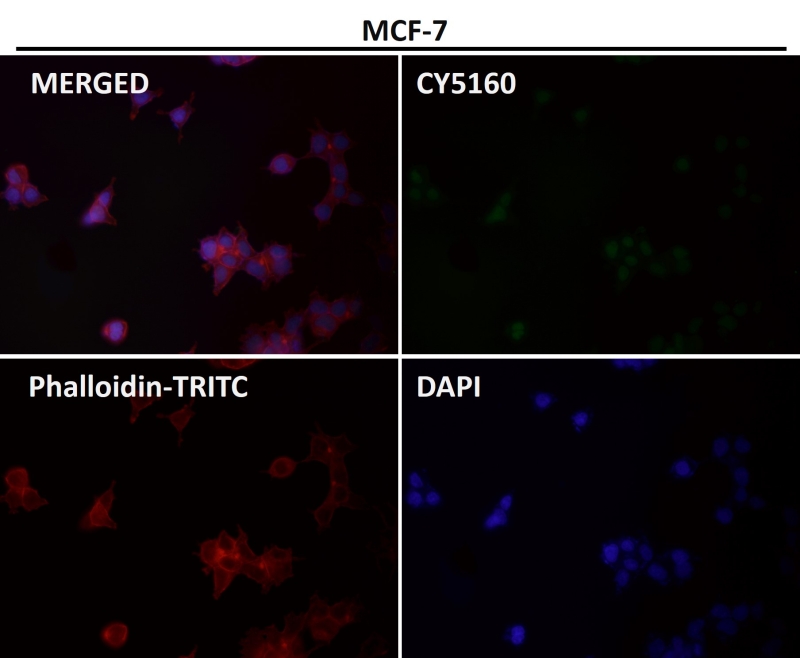
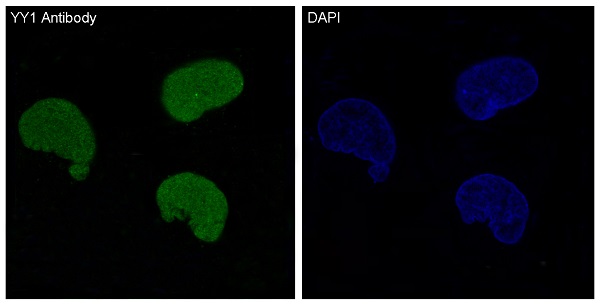
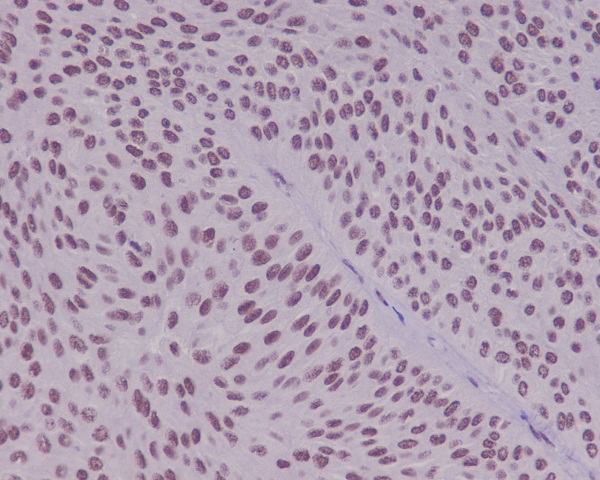
| WB | 咨询技术 | Human,Mouse,Rat |
| IF | 1/20-1/50 | Human,Mouse,Rat |
| IHC | IHC:1/100-1/200;IHF:1/50-1/200 | Human,Mouse,Rat |
| ICC | 1/50-1/200 | Human,Mouse,Rat |
| FCM | 咨询技术 | Human,Mouse,Rat |
| Elisa | 咨询技术 | Human,Mouse,Rat |
| Aliases | YY1, Delta transcription factor, INO80 complex subunit S, NF-E1, Yin and yang 1, YY-1;YY1 |
| WB Predicted band size | Calculated MW: 45 kDa ; Observed MW: 68 kDa |
| Host/Isotype | Rabbit IgG |
| Antibody Type | Primary antibody |
| Storage | Store at 4°C short term. Aliquot and store at -20°C long term. Avoid freeze/thaw cycles. |
| Species Reactivity | Human,Mouse,Rat |
| Immunogen | A synthesized peptide derived from human YY1 |
| Formulation | Purified antibody in PBS with 0.05% sodium azide,0.05% BSA and 50% glycerol. |
+ +
以下是3篇与YY1抗体相关的参考文献概览:
---
1. **文献名称**: "Yin Yang 1 is a negative regulator of interferon-γ gene expression"
**作者**: Atchison, M.L., et al.
**摘要**: 本研究通过ChIP-seq和YY1抗体的应用,揭示了YY1在调节免疫反应中的双重角色。研究发现,YY1可直接结合IFN-γ基因启动子,抑制其转录,同时通过招募组蛋白去乙酰化酶(HDACs)改变染色质结构,为YY1抗体在免疫调控研究中的功能验证提供了依据。
---
2. **文献名称**: "YY1 regulates tumorigenicity and cancer stem cell-like activity in human colorectal cancer"
**作者**: Lee, T.H., et al.
**摘要**: 该文献利用YY1抗体进行免疫组化分析,发现YY1在结直肠癌组织中高表达,且与癌症干细胞特性及患者预后不良相关。功能实验表明,敲低YY1可抑制肿瘤生长,提示其作为潜在治疗靶点,同时验证了所用YY1抗体的特异性。
---
3. **文献名称**: "YY1 associates with the macrosatellite DXZ4 and mediates its chromatin interaction"
**作者**: Chadwick, B.P., et al.
**摘要**: 通过YY1抗体的染色质免疫共沉淀(ChIP)和免疫荧光技术,研究发现YY1与X染色体上的DXZ4巨卫星DNA结合,调控三维基因组结构。该研究为YY1抗体在表观遗传学和染色体构象研究中的应用提供了范例。
---
**注**:以上文献为示例性概括,实际引用需根据具体研究需求检索PubMed或Google Scholar获取全文及准确信息。建议关注近5年研究以获取最新抗体验证数据(如兔单克隆抗体应用进展)。
The YY1 (Yin Yang 1) antibody is a critical tool in molecular and cellular biology research, targeting the YY1 protein—a ubiquitously expressed transcription factor with dual regulatory roles in gene activation and repression. YY1. encoded by the *YY1* gene in humans, belongs to the GLI-Krüppel zinc finger family and binds DNA through its conserved zinc finger domains. It regulates diverse biological processes, including embryonic development, cell differentiation, proliferation, and apoptosis, by modulating chromatin structure, interacting with histone modifiers (e.g., HDACs, PRMTs), and recruiting co-activators or co-repressors to target gene promoters.
YY1 antibodies are widely used in techniques like chromatin immunoprecipitation (ChIP), immunofluorescence (IF), and Western blotting to study YY1’s localization, DNA-binding activity, and protein-protein interactions. Their applications span cancer research, epigenetics, and developmental biology, as YY1 dysregulation is linked to tumors, neurological disorders, and autoimmune diseases. Commercially available YY1 antibodies vary in specificity (e.g., recognizing distinct isoforms or post-translationally modified forms), requiring careful validation via knockout controls or peptide-blocking assays. Despite challenges in cross-reactivity, these antibodies remain indispensable for dissecting YY1’s context-dependent roles in health and disease.
×